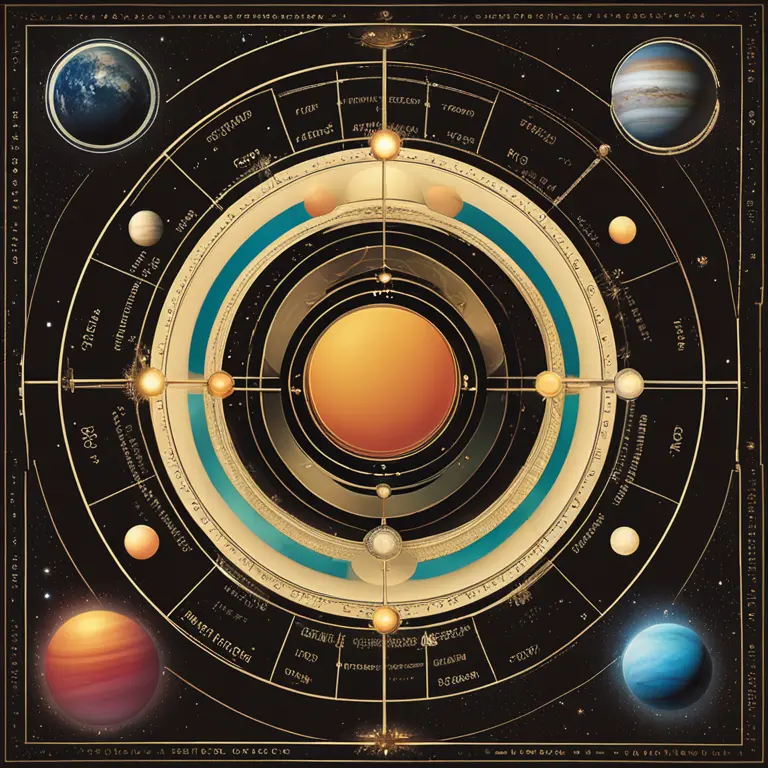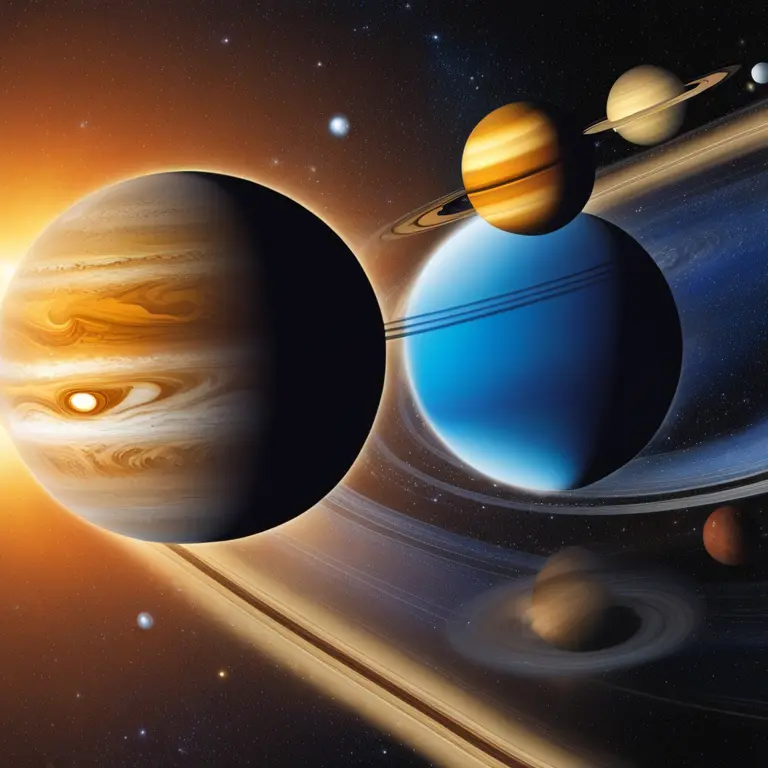
The Effects of Planetary Retrogrades
Delve into the cosmic influence of planetary retrogrades and their impact on our lives according to astrological principles.
article by Priya Deshmukh
The Astrological Phenomenon of Retrograde Motion
Retrograde motion in astrology signifies a planet's apparent reversal of direction in the sky from the perspective of Earth. The planets in our solar system follow an elliptical orbit around the Sun, and although they move in a consistent direction, at times, some planets seem to backtrack along their orbital path. This optical illusion occurs as Earth, with its own orbital speed and trajectory, passes these slower-moving outer planets or when we are passed by faster-moving inner ones. The concept of planets in retrograde is central to astrology, as these periods are traditionally associated with delays, reconsideration, and internal reflection across various areas of life.

The Inner Planets and Their Retrogrades
Mercury, Venus, and Mars are known as the inner planets due to their proximity to the Sun relative to Earth. Mercury retrograde is infamous for communication mishaps and technological malfunctions, reminding us to review plans and contracts carefully. Venus retrograde can shift our focus towards reassessing what brings us joy and pleasure, influencing relationships and financial matters. Meanwhile, Mars retrograde may prompt a reevaluation of our assertiveness and approach to conflict, igniting a deeper understanding of our desires and frustrations.

The Outer Planets' Retrograde Cycles
Jupiter, Saturn, Uranus, Neptune, and Pluto make up the outer planets, each with its unique retrograde implications. Jupiter's retrograde is a call for philosophical introspection, inviting us to find purpose and expand our horizons from within. The disciplinarian Saturn urges us to reconsider our responsibilities and long-term goals. Uranus retrograde pushes for internal change, often leading to breakthroughs in personal freedom. Neptune's retrograde demands that we confront our illusions, while Pluto's backward dance intensifies our look into the transformation and power dynamics.

Retrogrades and Personal Growth
Astrologers view these retrograde periods not as a cause for alarm but rather as opportunities for growth. When planets enter retrograde, it is a time for contemplation and inward focus. This can be a productive phase for revisiting past projects, resolving unfinished business, and reflecting on personal patterns. The key is to proceed with caution and awareness, using this period to pause and plan rather than to initiate new ventures or make significant life changes.

Navigating Retrograde Challenges
Despite the potential for retrogrades to incite confusion and disruption, their cyclical nature allows us to prepare and adapt. For instance, in 2024, we can anticipate Mercury retrograde phases and approach them with strategies to minimize misunderstandings and technological issues. Keeping a flexible mindset and an open heart during Venus and Mars retrogrades will help us mend interpersonal relationships and personal endeavors with resilience.
Retrogrades in Your Natal Chart
The influence of retrogrades extends beyond their transits through the sky; their impact can also be found in a person's natal chart. Having a natal planet in retrograde can indicate a distinctive learning process related to that planet's themes. An individual with Mercury retrograde in their birth chart, for example, might possess a contemplative mind that thrives on internal dialogue, often leading to unconventional problem-solving abilities.
Published: 1/19/2024
Modified: 1/19/2024
More predictions
Come back here soon to learn more about yourself and your future


Between Moon Phases and Soulmate Connections
Discover the mystical link between lunar cycles and soulmate encounters. This article delves into the celestial influence on love and relationships.


The Dance of Sun and Moon Phases: Celestial Rhythms
Explore the synchronous bond between the moon phases and the sun's position in astrology, and how they influence our lives.


The Nighttime Moon Phase: When It’s Visible to Observers
Learn which moon phase graces the night sky and discover its unique characteristics and impact on astrology and personal biorhythms.